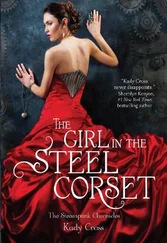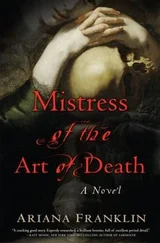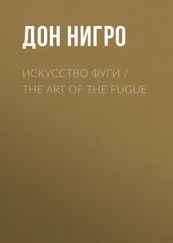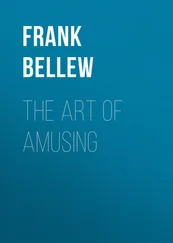Frank Abagnale - The Art of the Steal
Здесь есть возможность читать онлайн «Frank Abagnale - The Art of the Steal» весь текст электронной книги совершенно бесплатно (целиком полную версию без сокращений). В некоторых случаях можно слушать аудио, скачать через торрент в формате fb2 и присутствует краткое содержание. Год выпуска: 2001, ISBN: 2001, Издательство: Broadway Books, Жанр: Старинная литература, на английском языке. Описание произведения, (предисловие) а так же отзывы посетителей доступны на портале библиотеки ЛибКат.
- Название:The Art of the Steal
- Автор:
- Издательство:Broadway Books
- Жанр:
- Год:2001
- ISBN:9780767910910
- Рейтинг книги:4 / 5. Голосов: 1
-
Избранное:Добавить в избранное
- Отзывы:
-
Ваша оценка:
- 80
- 1
- 2
- 3
- 4
- 5
The Art of the Steal: краткое содержание, описание и аннотация
Предлагаем к чтению аннотацию, описание, краткое содержание или предисловие (зависит от того, что написал сам автор книги «The Art of the Steal»). Если вы не нашли необходимую информацию о книге — напишите в комментариях, мы постараемся отыскать её.
The Art of the Steal — читать онлайн бесплатно полную книгу (весь текст) целиком
Ниже представлен текст книги, разбитый по страницам. Система сохранения места последней прочитанной страницы, позволяет с удобством читать онлайн бесплатно книгу «The Art of the Steal», без необходимости каждый раз заново искать на чём Вы остановились. Поставьте закладку, и сможете в любой момент перейти на страницу, на которой закончили чтение.
Интервал:
Закладка:
What landed me in jail was my other bad habit, which was my enthusiasm for passing bad checks. The main reason I adopted those guises was to give me credibility when I cashed hot checks—and to satisfy my great taste for women. Hotel clerks and merchants didn’t question pilots and doctors too closely. Through my various hustles, I passed something like $2.5 million worth of checks, a blizzard of paper that I scattered in earnest throughout all fifty states and twenty-six countries, all before I was legally allowed to drink. I was proficient enough at cashing fraudulent checks that I earned the distinction of becoming one of the most hunted criminals by the FBI.
All bad things come to an end, of course, and I was finally caught by the French police after a stewardess recognized me from a wanted poster when I was doing some shopping. I was twenty-one. Convicted of forgery, I spent six months in a French prison, was extradited to Sweden, where I was again convicted of forgery, and served another six months in the prison in Malmo. Then I was turned over to the authorities in the United States.
That transition, however, got mildly delayed. After my plane landed in New York and was taxiing toward the gate, where the law awaited me, I escaped through the toilet onto the runway and took off. Within weeks, I got caught at the Montreal Airport, and was sent to the Federal Detention Center in Atlanta, to await trial. But I escaped by conning guards into thinking that I was a prison inspector. That kept me on the lam a bit longer. Actually, all of one month longer.
By now, a lot of cops had memorized my face, and I could never go anywhere without looking over my shoulder. The funny thing is that I never resorted to disguises. I didn’t dye my hair or grow a beard. The reason why I didn’t was because I was really sensitive to retaining my true identity. Regardless of the various aliases I adopted, I’d always be Frank Adams or Frank Williams or Frank something. I wanted to keep at least part of my real name intact. And because I didn’t take further precautions, I did realize that I was going to get caught, and probably sooner rather than later. Any criminal recognizes that the law sleeps, but it never dies.
Finally, one day I was walking past the Waldorf-Astoria Hotel in New York. Two plainclothes detectives were standing on the street corner, munching on hot dogs. One of them stared quizzically at me and yelled, “Hey Frank.” I turned around, and they identified themselves as police officers and said that I was Frank Abagnale. I vigorously denied it, but they knew better and took me in. Within a couple of hours, I had been positively identified. The following day, I was put in the custody of the FBI.
THE END OF THE ROAD
It didn’t take long for the crush of state and federal complaints to pour in: forgery, passing worthless checks, swindling, mail fraud, counterfeiting, and on and on. Prosecutors and U.S. attorneys from around the country competed to be the one who would bring me to trial, as if I were some sort of lottery prize. They all had strong cases. There was a lengthy list of witnesses willing and able to identify me and testify against me.
An arbitrary decision was made to bring me to trial in Atlanta. There were plenty of cities where I was not likely to be honored by the Chamber of Commerce, but I had done a lot of damage in Atlanta. I had spent a year there pretending to be a doctor, and I doubted that I was remembered fondly. And, of course, there was that little incident of escaping from a federal prison. Needless to say, it wouldn’t have been my first choice as a trial site. I had a good lawyer, though, and he was able to broker a favorable deal. In April 1971, I appeared before a federal judge and pleaded guilty to all the crimes “known and unknown” that I had committed in the United States. There were hundreds of outstanding charges against me, but the judge collapsed them into eight counts. He sentenced me to ten years on each of seven counts of fraud, to run concurrently, and two years on the one count of escape, which were to be served consecutively. And he remanded me to prison in Virginia.
TWENTY CENTS AN HOUR
The Petersburg jail wasn’t the worst place to do time. It was a far cry from the French jail that had shattered my soul and nearly killed me. But it wasn’t a great place to be, either. The days merged into one continuous blur.
I kept to myself and did my work diligently. I was assigned as a clerk in this big tire factory that recapped tires for government vehicles. I earned all of twenty cents an hour, and I was definitely not allowed a checking account. On the weekends, they showed movies to the inmates, the same ones that they played in town. The prison used to pay the town projectionist to come in and run the projector. But then they decided to train an inmate to do it, and for some reason they chose me. You had to be licensed to do the job, and so I was trained and took a test and got a license. I was the only one who was taught how to run the projector, and even when I was sick, I had to drag myself out of my cell on the weekends and show the movies.
When we had idle time, we’d sit around and compare war stories. I was constantly bemused by the dumb acts that landed some of the other inmates in jail. There were these two teenagers from Long Island. They were smoking dope one night when they encountered this Jamaican guy who introduced himself only as “Mustard.” After hanging out with them, Mustard asked if they wanted to rob a bank. They had never stolen anything, but he made it sound like a rollicking adventure. The plans were a little ragged. Mustard waited for them a few blocks away from the bank. He gave them guns. They drove a car one of them had borrowed from his father and parked it right in front of the branch, where surveillance cameras were whirring. They wore no disguises. They entered, marched up to a teller, and collected five thousand dollars, all while the cameras taped them. They drove the two blocks to their rendezvous with Mustard. He took the five thousand dollars, let them keep the guns, and said he’d meet them that evening. After they drove a few more blocks, the cops had them surrounded. The police said they’d let them off if they gave up the mastermind. All they knew, they said, was his name was Mustard. And he had the money. In court, the judge said they were so stupid that he was giving them each five years.
Another guy from New York had never done anything wrong, either, but one day, badly in need of money, he decided to rob a bank. Almost randomly, he selected a branch on Lexington Avenue. He went up to a teller and made his demands. She said, “You better turn around.” Everyone behind him had a gun trained on him. The branch was beneath what was then the New York City headquarters of the FBI, and all the customers were agents cashing their paychecks.
When the others learned why I was there—for passing $2.5 million of bum checks—they were practically drooling. At least I was put away for being clever.
But I didn’t make any friends in prison. I felt no connection to the other inmates. No one I met felt like a defeated soul, a loser, but merely a winner waiting out a temporary setback. They were in a dangerous state of denial. Of all the inmates I met, none was remorseful about the crimes he had committed, and that genuinely bothered me. No one ever said to me, “Gee, I really screwed up my life. I’m going to set things straight.” It was very demoralizing to me that in all the time I was in prison, not one of the six hundred inmates ever said that he was going to change. Instead, everyone was planning the next scam. And they were all trying to learn from me. Among inmates, con men are always looked up to as the upper echelon of criminals. Fellow inmates were always pressing me for applicable tips on getting fake IDs and ways to counterfeit checks.
Читать дальшеИнтервал:
Закладка:
Похожие книги на «The Art of the Steal»
Представляем Вашему вниманию похожие книги на «The Art of the Steal» списком для выбора. Мы отобрали схожую по названию и смыслу литературу в надежде предоставить читателям больше вариантов отыскать новые, интересные, ещё непрочитанные произведения.
Обсуждение, отзывы о книге «The Art of the Steal» и просто собственные мнения читателей. Оставьте ваши комментарии, напишите, что Вы думаете о произведении, его смысле или главных героях. Укажите что конкретно понравилось, а что нет, и почему Вы так считаете.












